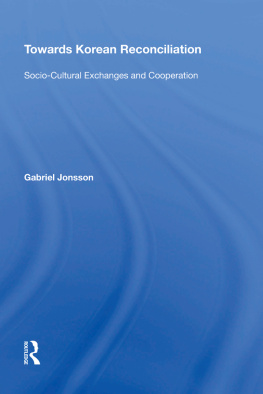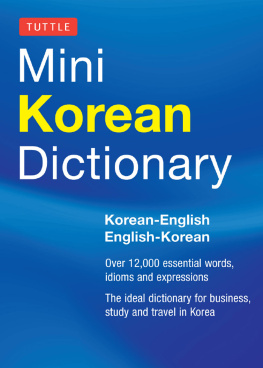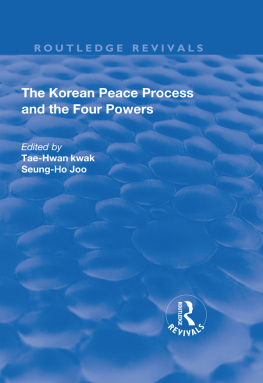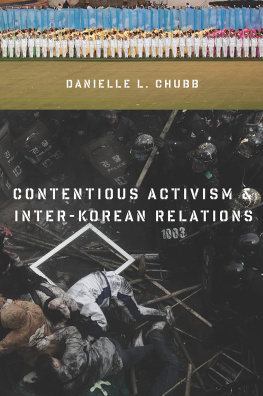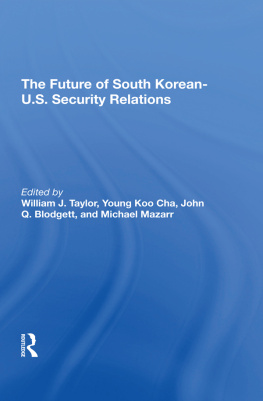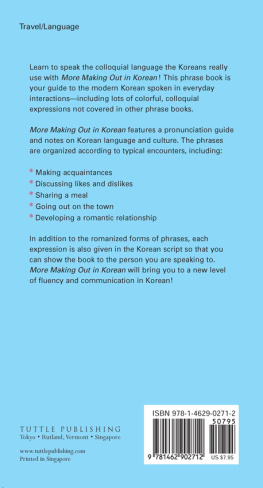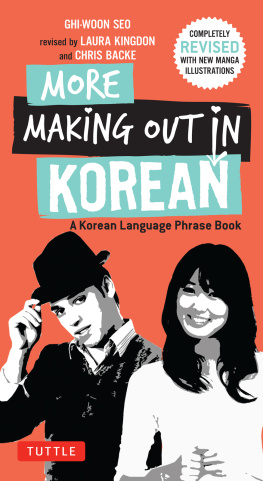Towards Korean Reconciliation
Socio-Cultural Exchanges and Cooperation
Gabriel Jonsson
Stockholm University, Sweden
First published 2006 by Ashgate Publishing
Reissued 2018 by Routledge
2 Park Square, Milton Park, Abingdon, Oxon OX14 4RN
711 Third Avenue, New York, NY 10017, USA
Routledge is an imprint of the Taylor & Francis Group, an informa business
Gabriel Jonsson 2006
Gabriel Jonsson has asserted his moral right under the Copyright, Designs and Patents Act, 1988, to be identified as the author of this work.
All rights reserved. No part of this book may be reprinted or reproduced or utilised in any form or by any electronic, mechanical, or other means, now known or hereafter invented, including photocopying and recording, or in any information storage or retrieval system, without permission in writing from the publishers.
A Library of Congress record exists under LC control number: 2006922670
Notice:
Product or corporate names may be trademarks or registered trademarks, and are used only for identification and explanation without intent to infringe.
Publisher's Note
The publisher has gone to great lengths to ensure the quality of this reprint but points out that some imperfections in the original copies may be apparent.
Disclaimer
The publisher has made every effort to trace copyright holders and welcomes correspondence from those they have been unable to contact.
ISBN 13: 978-0-815-39852-3 (hbk)
ISBN 13: 978-1-351-14440-7 (ebk)
Firstly I wish to extend my gratitude to those who have been kind enough to offer their assistance during the preparation of this book. This stimulating project would never have reached completion without a pair of one-month research visits to South Korea during both 2002 and 2004. I therefore would like to acknowledge Stockholm University, the Center for Pacific Asia Studies at the Institute of Oriental Languages for providing financial support for both of these fact-finding sojourns.
In addition, I wish to express my gratitude to Professor Staffan Rosn at Stockholm University, Head of the Korean Department at the Institute of Oriental Languages, and to Professor Masako Ikegami-Andersson, Head of the Center for Pacific Asia Studies, for their invaluable assistance during the course of the project. I have also drawn great encouragement for the project from seminars held at both the Korean Department and at the Centre for Pacific Asia Studies. In particular, I wish to express my thanks to Doctor Linus Hagstrm at the Swedish Institute for International Affairs and Doctor Anders Uhlin at Lund Universitys Department of Political Science, for their kind advice and assistance.
In Korea, I wish to especially thank the former President of the Korea Institute for National Unification, Doctor Seo Byung-Chul, and his successor Doctor Park Young-Kyu for permitting me to study at the institute. As a guest researcher, I benefited greatly from my affiliation with the institute in terms of collation of relevant material and of course in terms of establishing valuable contacts. I also wish to thank my wife, Lee Hee-Sook, and my daughter, Rebecka Ye-mi, for their extraordinary patience towards me during the preparation of this book. Noel McCarthy has my thanks for editing the English as does Roberto Menkes for his assistance concerning technical matters related to the project. Finally, Liber Kartor AB [Liber Maps Ltd.] deserves my thanks for letting me use their map of the Korean Peninsula reprinted in Bonniers Stora Vrldsatlas [ Bonniers Great World Atlas ] from 1994 with a few additions. Thank you one and all.
Stockholm, 24 January, 2006
Gabriel Jonsson

Map of the Korean Peninsula
Chapter 1
Introduction
Korea is generally considered to be the world's only divided nation following on the unification of both Germany and Yemen, in 1990. According to the South Korean scholar O Ki-sng (1999), Korean unification remains an aspiration due to unique forms of nationalism singularly inherent to both states. The South Korean scholar Park Young-Ho and his associates wrote in (2002) that unification is asserted primarily, as a should-do task whereby the myth of "One People. One Nation" has become a widely popularized catch-cry. The former North Korean diplomat defector Hyn Sng-il writes (1998) that unifying North and South is the greatest wish of the Korean people. Whether this aspiration for unification is actually reflected in the detail of public policies or not will be a primary subject for investigation in this book.

